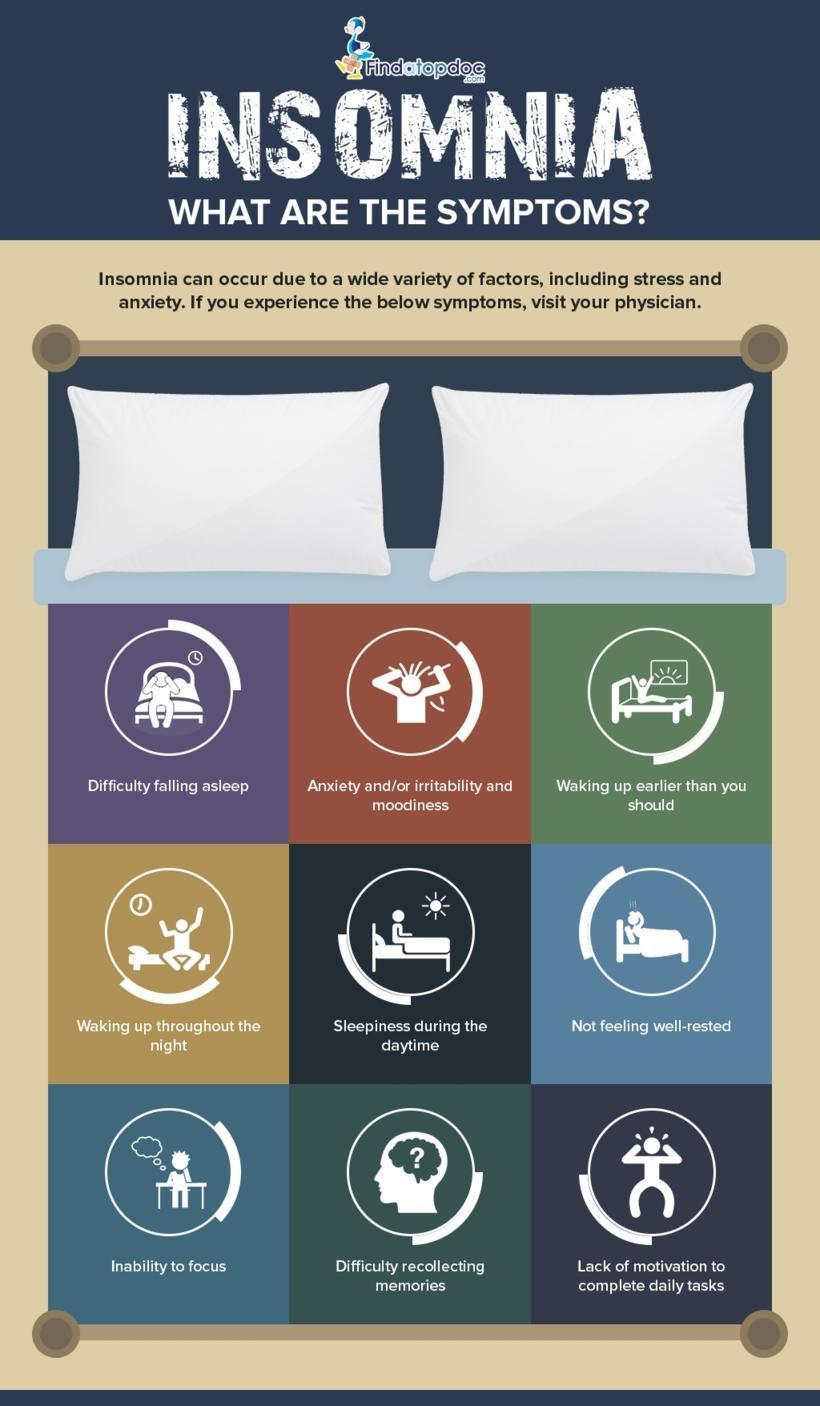
What is Insomnia?
Insomnia is a highly prevalent sleep disorder that regularly affects millions of people worldwide. In short, individuals with insomnia find it difficult to fall asleep and/or stay asleep. Insomnia commonly leads to daytime sleepiness, lethargy, and a general feeling of being unwell both mentally and physically.
What are the types of Insomnia?
Insomnia is commonly separated into three types:
- Transient insomnia - occurs when symptoms last from a few days to a few weeks.
- Acute insomnia - also called short-term insomnia. Symptoms persist for several weeks.
- Chronic insomnia - this type lasts for months, and sometimes years. According to the National Institutes of Health, the majority of chronic insomnia cases are secondary, meaning they are side effects or symptoms resulting from another primary problem.
What are the Signs and symptoms of Insomnia?
Insomnia itself may be a symptom of an underlying medical condition. However, there are several signs and symptoms that are associated with insomnia:
- Difficulty falling asleep at night
- Waking during the night
- Waking earlier than desired
- Still feeling tired after a night's sleep
- Daytime fatigue or sleepiness
- Irritability, depression, or anxiety
- Poor concentration and focus
- Being uncoordinated, an increase in errors or accidents
- Tension headaches (feels like a tight band around head)
- Difficulty socializing
- Gastrointestinal symptoms
- Worrying about sleeping
Sleep deprivation can cause other symptoms. The afflicted person may wake up not feeling fully awake and refreshed, and may have a sensation of tiredness and sleepiness throughout the day.Having problems concentrating and focusing on tasks is common for people with insomnia.According to the National Heart, Lung, and Blood Institute, 20 percent of non-alcohol related car crash injuries are caused by driver sleepiness.
What Causes Insomnia?
Insomnia can be caused by physical factors as well as psychological factors. There is often an underlying medical condition that causes chronic insomnia, while transient insomnia may be due to a recent event or occurrence. Insomnia is commonly caused by:
- Disruptions in circadian rhythm - jet lag, job shift changes, high altitudes, environmental noise, heat, or cold.
- Psychological issues - people with mood disorders such as bipolar disorder, depression, anxiety disorders, or psychotic disorders are more likely to have insomnia.
- Medical conditions - brain lesions and tumors, stroke, chronic pain, chronic fatigue syndrome, congestive heart failure, angina, acid-reflux disease (GERD), chronic obstructive pulmonary disease, asthma, sleep apnea, Parkinson's and Alzheimer's diseases, hyperthyroidism, arthritis.
- Hormones - estrogen, hormone shifts during menstruation.
- Other factors - sleeping next to a snoring partner, parasites, genetic conditions, overactive mind, pregnancy.
- Media technology in the bedroom - researchers from the University of Helsinki, Finland, reported in the journal BMC Public Health that media technology in the bedroom disrupts sleep patterns in children. They found that children with TVs, computers, video games, DVD players, and mobile phones in their bedrooms slept considerably less than kids without these devices in their bedrooms. In addition, a study conducted by Rensselaer Polytechnic Institute found that back-lit tablet computers can affect sleep patterns.
Some types of insomnia resolve when the underlying cause is treated or wears off. In general, insomnia treatment focuses on determining the cause. Once identified, this underlying cause can be properly treated or corrected.


